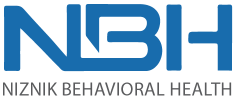Substance Abuse Prevention: A Collaborative Effort Between Parents & Schools
What Are the Best Ways of Preventing Substance Abuse?
Education. Education. Education.
There’s no way around it. The best means of preventing substance abuse is to teach kids and teens alike to make the right decisions about addictive substances. Prevention is hands-down the best deterrent method for addiction throughout all socioeconomic classes. Children measured as “at-risk” benefit just as much as those who aren’t.
Commonly, children first become exposed to addictive substances— like alcohol and cigarettes— at home. Having a discussion about the ramifications of partaking in said substances is extremely important, as is the distinction between an adult making a decision, and a child being too young to make the same decision.
Children mirror behavior. It’s simple.
And it may not be your behavior they’re mirroring!
Combat substance abuse by conjoining healthy home discussions with a robust substance abuse prevention program at school.
Do you know if your child’s school has one? Start asking questions!
Get involved!
No one is going to care more about your children than you do. And that’s the way it should be. That may mean some extra leg-work for you in the immediate term. But trust us, the effort is worth it.
Creating Smart Substance Abuse Prevention Programs
For substance abuse prevention programs to be effective, according to the National Institute on Drug Abuse, programs should:
- Strengthen behaviors leading to smart decision making while reversing or reducing risky behaviors (like impulsivity)
- Identify and address all forms of legal and illegal substance abuse
- Focus on heavily abused substances in relation to geographical location
- Address particularly impacted demographics
- Incorporate family-based prevention education
We’re not expecting you to be an expert in identifying whether or not your child’s school prevention program satisfies these requirements, but do get involved. Find out if drug prevention education is taught at your child’s school. If it’s not, volunteer to help put one together!
You’d be surprised how willing local law enforcement officials, EMTs, and firefighters are ready to answer the call— especially when it’s about protecting America’s future generations.
If your child’s school does have a prevention program, why not ask for a guest pass to attend? Your feedback may be invaluable in improving their existing program— especially if you are in recovery!
Prevention of Substance Abuse Is a Conjoined Journey
Learning how to prevent substance abuse is a journey for parents and children alike.
And guess what?
National efforts are pretty baffled too.
Now more than ever it is absolutely critical to espouse sensible ways of preventing substance abuse both at home and at school. Academic institutions are unfortunately hotbeds of illicit substance activity. Rates vary by community, but all socioeconomic demographics are affected.
Make a concerted effort to ensure your child’s school has an evidence-based substance abuse prevention program— but you can’t stop there!
You are the first line of defense in arming your children with the information they need to identify and prevent substance abuse. Don’t assume someone else is doing it for you, but at the same time, remember to leverage the resources at your disposal.

